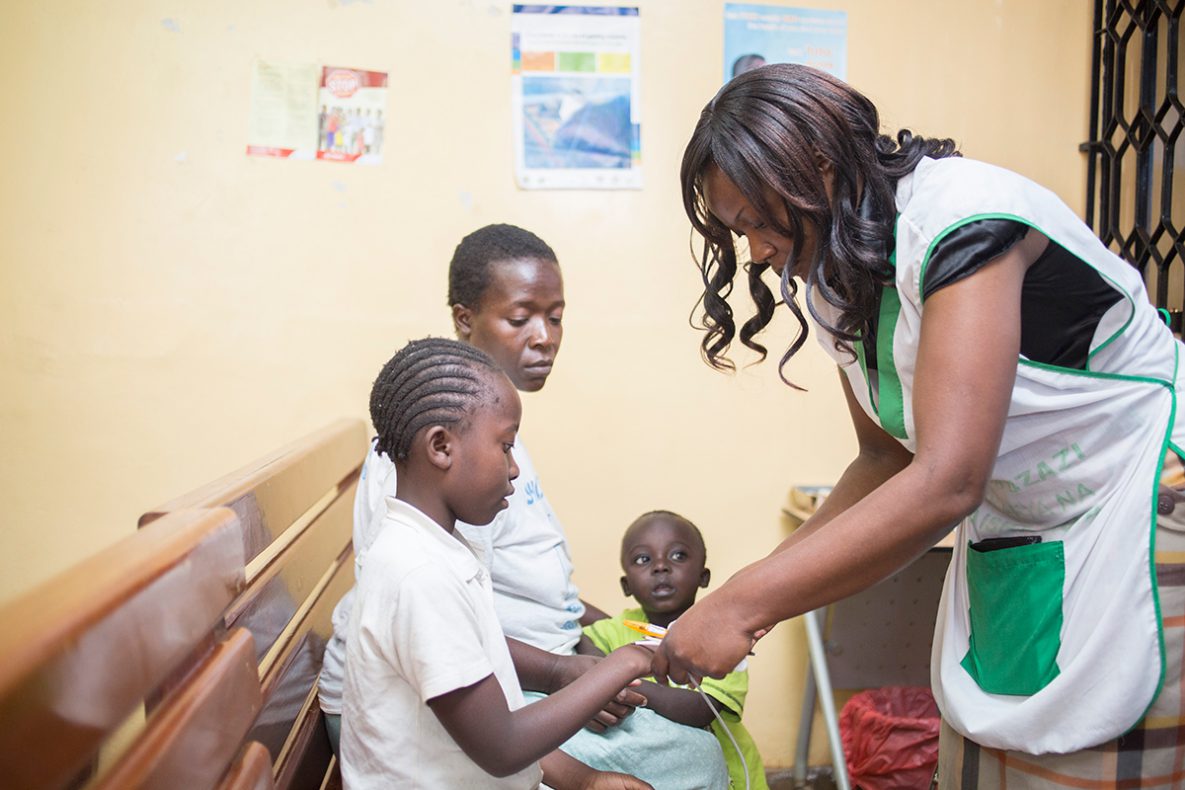What CDC Is Doing in Kenya

For more than 30 years, CDC has worked to help strengthen the health system in Kenya, working in partnership with the government of Kenya and local and international partners to build sustainable public health capacity.
CDC Kenya saves lives through research and development of new interventions, such as vaccines, drugs, and diagnostics, and development of the leadership and scientific expertise required to build effective public health systems. Part of CDC’s Center for Global Health, CDC Kenya advances health science and technology in Kenya, particularly where current solutions are lacking. Once tools are proven to be effective, CDC Kenya evaluates ways to improve their delivery and address obstacles to uptake. CDC Kenya then helps translate research findings into policy recommendations alongside the government of Kenya, World Health Organization, and other partners. Collaborating with partners to translate research and policy into practice, CDC Kenya has contributed to the substantial scale-up of the Kenya government’s capacity to respond to serious public health threats, such as the HIV/AIDS epidemic.
CDC Kenya strengthens public health capacity to rapidly identify and contain infectious disease threats as well as respond to natural and man-made disasters.
CDC Kenya supports the development and implementation of population and facility-based disease surveillance systems that provide for data collection, analysis, and reporting in order to assess the disease burden in communities, identify outbreaks, and evaluate the impact of health interventions. CDC Kenya has also spearheaded state-of-the-art and mobile data collection systems.
Training future public health leaders in clinical, laboratory, public health science, program management, and leadership competencies
CDC Kenya’s work extends beyond our own laboratories. Through CDC staff’s technical expertise, CDC Kenya supports the government of Kenya in building the critical laboratory network necessary to detect emerging infections and researches and evaluates state-of-the-art diagnostics in real world settings.
CDC's Division of Global Migration and Quarantine (DGMQ), assisted by the Division of Global Health Protection, sponsors the Africa Field Program, administered from CDC’s Kenya office, which is dedicated to the improvement and promotion of health for refugees and immigrants. The DGMQ Africa Field Program’s major partners in this effort are the Kenya Medical Research Institute, International Organization for Migration, and UN High Commissioner for Refugees.
Since 1979, CDC has worked with the Government of Kenya, other U.S. government agencies, and international donors to implement research in Kenya that has provided an evidence base for life-saving public health interventions, like insecticide treated bed nets, that are used around the world.
CDC Kenya, in collaboration with local and international partners, evaluates, implements, and scales up proven approaches to achieve large-scale and demonstrable reductions in preventable illness and death.
The effectiveness of CDC Kenya’s work can be seen in the number and quality of evidence-based policies implemented by the Kenyan government and globally.